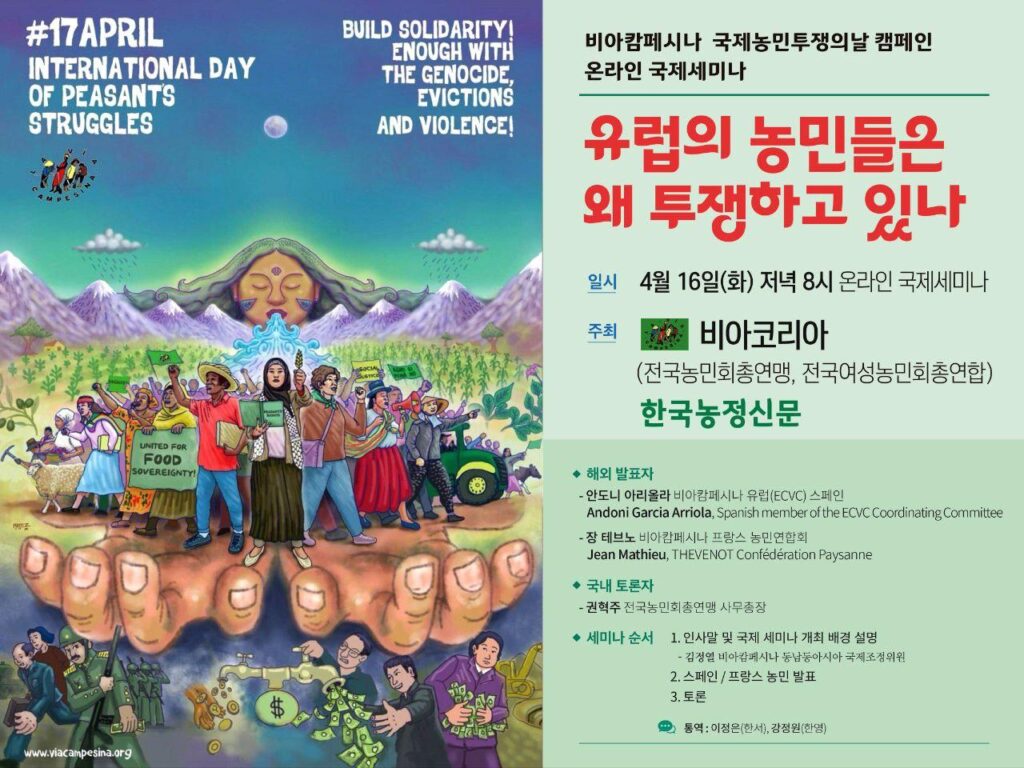Korea: Peasant Movements hold dialogue with European Counterparts on Farmers’ Protests

Despite the rapid deterioration of the production environment, farmer protests persist across Europe, with farmers expressing discontent towards the European Union and national governments for their insistence on maintaining existing agricultural policies. The sheer scale and enduring nature of these protests have captured the attention of farmers worldwide. In response, Korean farmers, facing similar challenges, have shown a keen interest in understanding these events.
To facilitate dialogue and understanding, the International Peasant Solidarity Movement, Via Campesina, along with its domestic organization in Korea, Via Korea (comprising the Korean Peasants’ League and Korean Peasant Women’s Association), partnered with IKP News (Korean Agriculture News) to organize a cross-continental exchange titled “Why are European Farmers Protesting?” . This virtual event – held on April 16th to coincide with the International Day of Peasant Struggle – explored the sentiments of farmers engaged in agricultural protests across Europe.

Andoni Ariola, a Spanish peasant-farmer and activist, highlighted the background of European farmers’ discontent. He serves as an executive member of the Coordinadora de Organizaciones de Agricultores y Ganaderos (COAG), representing Spanish farmers, and is actively involved in the European Coordination Via Campesina (ECVC). Ariola criticized the EU’s pursuit of new Free Trade Agreements (FTAs), emphasizing their geopolitical motivations and disregard for food sovereignty amidst the COVID-19 era. He stressed the detrimental impact of these policies on agriculture, small-scale farmers, and food sovereignty, urging greater awareness and action.
Jean Tebno, a young farmer activist from the Confédération Paysanne in France, provided insight into the French farmer protests, highlighting their nationwide impact and challenges within the agricultural sector. He underscored the influence of powerful interest groups and large-scale farming representatives aligned with the food industry, hindering the representation of peasant farmers’ voices. Tebno emphasized the importance of amplifying the voices of small-scale farmers and citizens and engaging in responses at the European Union level.
Following these presentations, Kwon Hyuk-joo, Secretary-General of the Korean Peasants’ League, expressed concerns about securing support from the majority of peasants and the public. He stressed the need for an overwhelming struggle involving all stakeholders in agriculture to address Korea’s agricultural issues.
Kim Jung-yeol, a member of the La Via Campesina International Coordination Committee, highlighted the failure of the neoliberal agricultural system to address climate and environmental crises. She emphasized the necessity of fundamental systemic changes, drawing inspiration from European struggles to strengthen domestic movements in Korea.
This article by Han Woo-jun appeared first on IKP news and has been translated and edited for length and clarity
